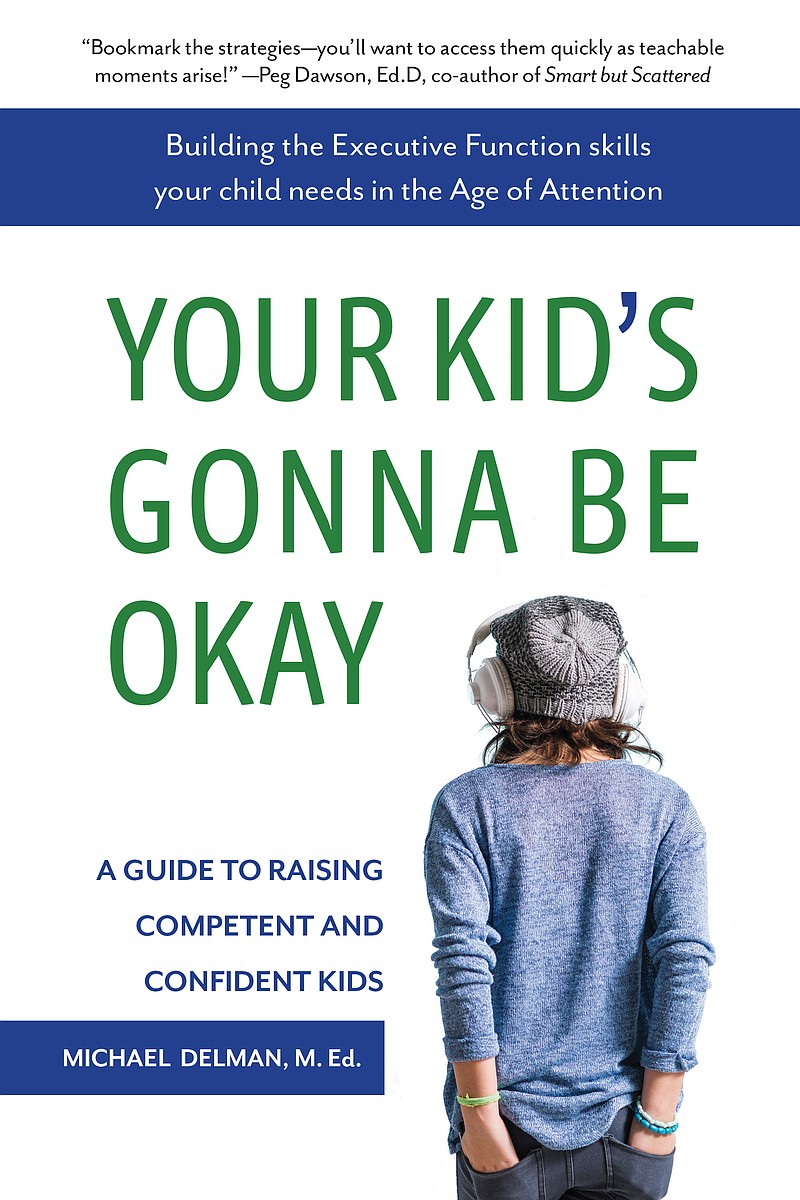OK, parents. It's time for some straight talk.
If you and your teen butted heads all year about their schoolwork, summer is a great time to hit reset. Sure, the Riverbend Festival is probably on their agenda for the next few days, but summer's relaxing rhythms bring a chance to reflect on school-year stresses.
To learn more
Copies of Delman’s book are available on Amazon.com and the Barnes & Noble website.
Maybe your kids' grades weren't up to standards or their work ethic left plenty to be desired. Or maybe you were so demanding you drove your children nuts.
Whatever the difficulty, take a deep breath and consider a few tips from a pro.
Earlier this week, we talked to Michael Delman, a career teacher and principal who has just authored a new book, "Your Kid's Gonna Be Okay: Building the Executive Function Skills Your Child Needs in the Age of Attention."
A clarification: "executive function skills" don't mean resume-building traits designed to help your child become a CEO. Executive functions are what educators and cognitive experts call a cluster of everyday abilities that allow your child to be an effective student - things like paying attention, staying organized, practicing self-motivation and regulating emotions.
Summer is a good time to be intentional about learning these traits, said Delman, a former principal of the Christa McAuliffe Regional Charter Public School in Framingham, Massachusetts, near Boston. Delman, himself the parent of two teens, leads a company called Beyond Booksmart that offers one-on-one coaching to help students succeed.
First, though, he counsels frazzled parents to take a breath and keep the long view in mind.
"The central message [of the book] is that you can't look at a caterpillar and predict the butterfly inside," he said. "You are seeing a kid whose brain is not fully developed."
Raising a child is slow going, he says, much like watching a tree grow.
Here are a few strategies you can use with your children this summer to get them on firmer footing in school, he said.
» Getting started. One of the biggest challenges for students is academic inertia, the hesitancy to even get started on an assignment or a project.
Delman says the first order of business is to determine if the procrastination is rooted in boredom or anxiety. He suggests a negotiated approach that emphasizes baby steps; anything to get the child off the dime.
View other columns by Mark Kennedy
"Tell them, 'If you get something done in the next 15 minutes, I will stay off your case for the next hour. Why don't we just spend 15 minutes and see how it is for you.' You are providing a level of challenge for a kid who is bored. But if you have a kid who is anxious, you don't want to rush them."
» Staying focused. Kids will look for exit ramps when doing tasks they don't enjoy, Delman said. The trick is to allow breaks, but to build bridges to what comes next. He suggests asking a child - before they take a break - to write down the first thing they need to do when they rejoin the task.
"When your kid takes a break they may not want to come back," Delman said. " [This way] they have a clear plan for what they have committed to do."
» Know when to worry and when to relax. Worry leads to anxiety, which leads to conflict. Unfortunately, parents' brains are wired to worry, Delman says. Two proactive measures can help dissolve parent-child conflicts over academics, he said. Parents must learn to empathize and normalize, he insists.
"You can't reason with an unreasonable person," he said. "You have to empathize. Perhaps by saying [to the child], 'I understand, this is hard stuff.' Or normalize [by saying], 'Lots of kids struggle with this.'"
Contact Mark Kennedy at mkennedy@timesfreepress.com0r 423-757-6645.

